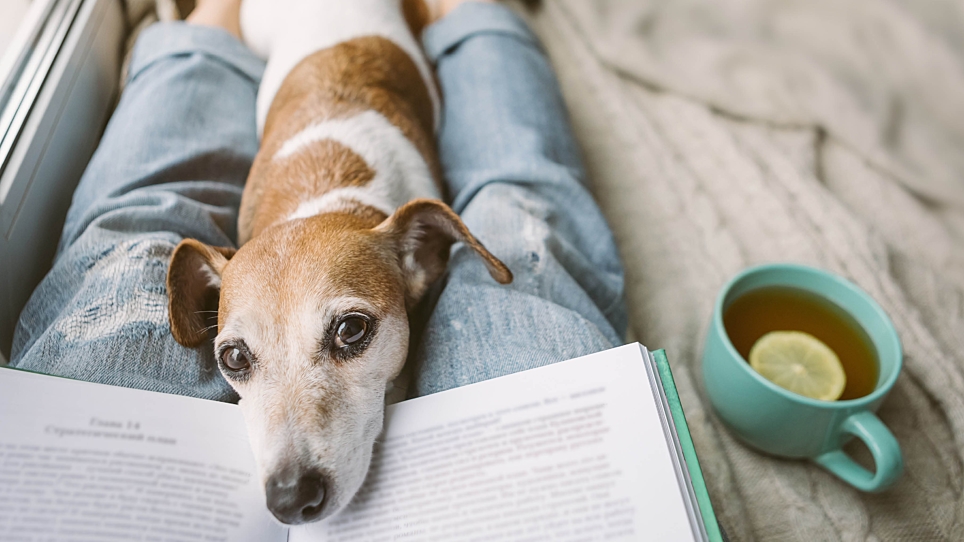Getting set up
It's a great idea to set up for your new pet before adopting. Put your dog's bed, bowl and toys in a quiet space in your home that they can call their own. If you've got other pets, make sure that your new dog can sleep and eat in peace.
Your new dog will need:
- Food and water bowls
- Warm bedding
- Toys
- A collar with an engraved tag
- A harness and lead
- High-quality food
You can get all of this and more from our Pet Shop at AWL.
Travelling
Once you've met and adopted your fur-baby, take them straight home and don't make any stops along the way. The sooner your new dog is home and settling in, the happier they'll be.
Spending time
If you can, try adopting when you've got a few days to spend with your new dog to help them settle in.
On the first day and night, your dog will likely want some quiet time to adjust to their new home. Sitting quietly together and reading a book or watching some TV are relaxing ways you can bond.
It's a good idea to leave your dog alone with a yummy treat, like a pig's ear, for small amounts of time in the first few days. This helps them learn that when you leave, you will come back. Just make sure you come back before they begin worrying.
Outings
After the first day, your dog might show that they want to explore the neighbourhood. A gentle walk together is a great idea, but try to keep it relaxed. During the first week, stick to walking in quiet areas with your dog on their lead. This will help your dog get their bearings slowly, and you'll get to know more about how your dog likes to explore.
Avoid dog parks, busy beaches or doggy playdates until you're sure you know how your new dog will feel. These places can be really overwhelming for your pup.
Housetraining
Your new dog may not know much about being inside, so they're going to need your help while they learn. It's best to let your dog stay in rooms where you won't mind the odd accident while they practice.
While your dog's exploring new rooms and spaces, keep their lead on. That way, if there happens to be an accident, you can calmly move them away from the area and take them outside.
After playtime, naptime, drinks, meals and every few hours, take your dog outside. Whenever your dog toilets outdoors, reward them with a pat, treat or positive words.
Patience is the key to toilet training – never punish your dog for toileting inside, it won't teach them a thing, but it will stress them out.
Routines
Dogs like structure – so start your feeding, toileting, playtime and training routine right from day one. A consistent schedule will help your new fur-baby integrate with your home.
Visitors
Avoid having visitors or guests come over to meet your new dog for at least the first week.
